International Development
Research Interests
• Higher education systems in developing regions
• University creation in developing regions
• Public sector knowledge management
• International agricultural value chains
• Amazon novel foods
Recent Publications
Hanif, S., Ahsan, A., Wise, G., (2020). Icebergs of Expertise-Based Leadership: The Role of Expert Leaders in Public Administration Sustainability, 12(11), 4544. DOI:10.3390/su12114544
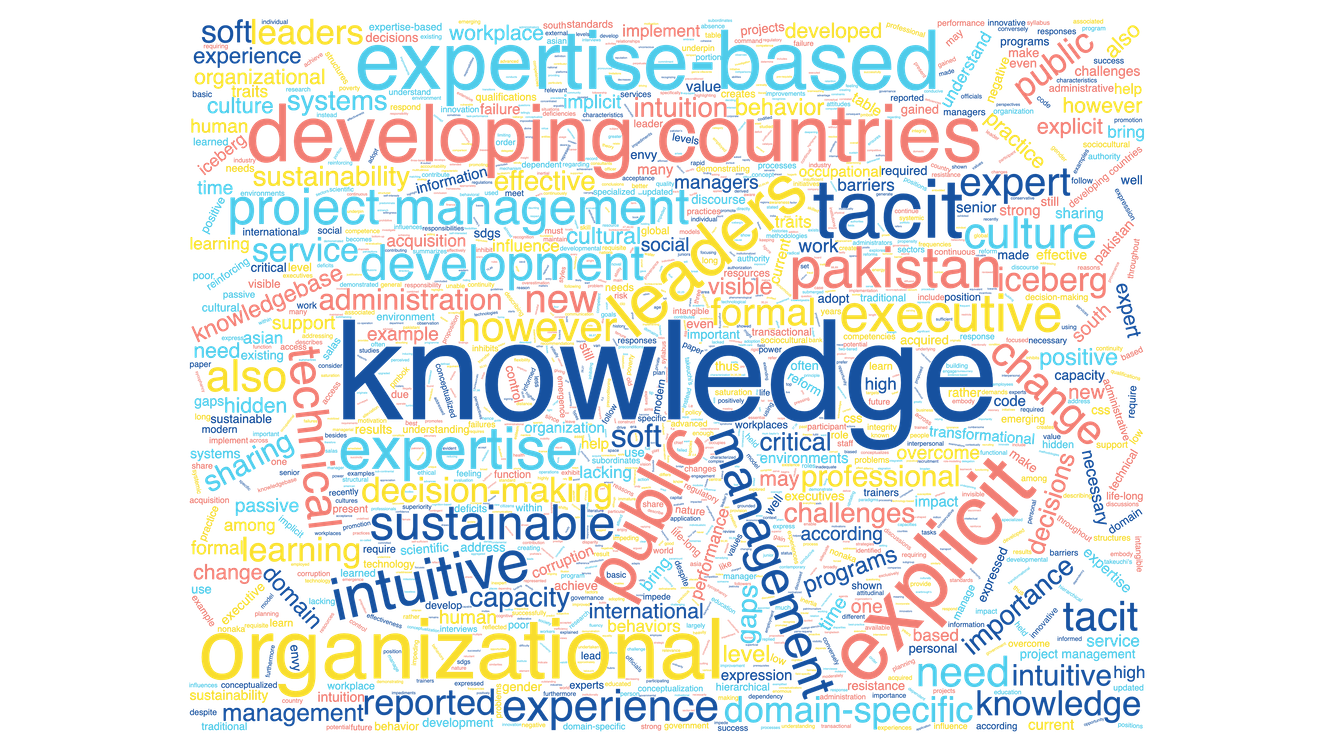
There is a pressing need for public administration leaders to exhibit expertise-based intuitive leadership traits for developing countries to respond to sustainability challenges. While the importance of explicit and tacit knowledge to underpin expertise-based intuitive decision-making is known, public service leaders of developing countries can lack these traits. It is necessary to explore the reasons for leadership skills gaps in order to define remedial actions, such as better executive development training. This study conducts 28 in-depth interviews with public administration leaders, managers, and executive training professionals in Pakistan to address the challenge of how to build expertise-based intuitive leadership traits in public administration leaders. The main findings highlight deficiencies in domain-specific knowledge and soft skills. Deficits in the formal training of leaders and the negative contribution of cultural preconditions both result in explicit and tacit knowledge gaps that undermine expertise-based intuitive decision-making. An “iceberg of expertise-based leadership” model is conceptualized, extending on previous models, to describe the intangible role that explicit and tacit knowledge play in the visible expression of leadership skills. The relevance of this model for the success of public sector-led initiatives for sustainable development is highlighted.
• download full text •
Wise, G., (2019). Go south! The new dynamism of Latin America. No Going Back: Exploring New Horizons in Global Education Part 1, 54-71. Barton Carlyle: Edinburgh, UK. ISBN:978-1-9161069-1-8
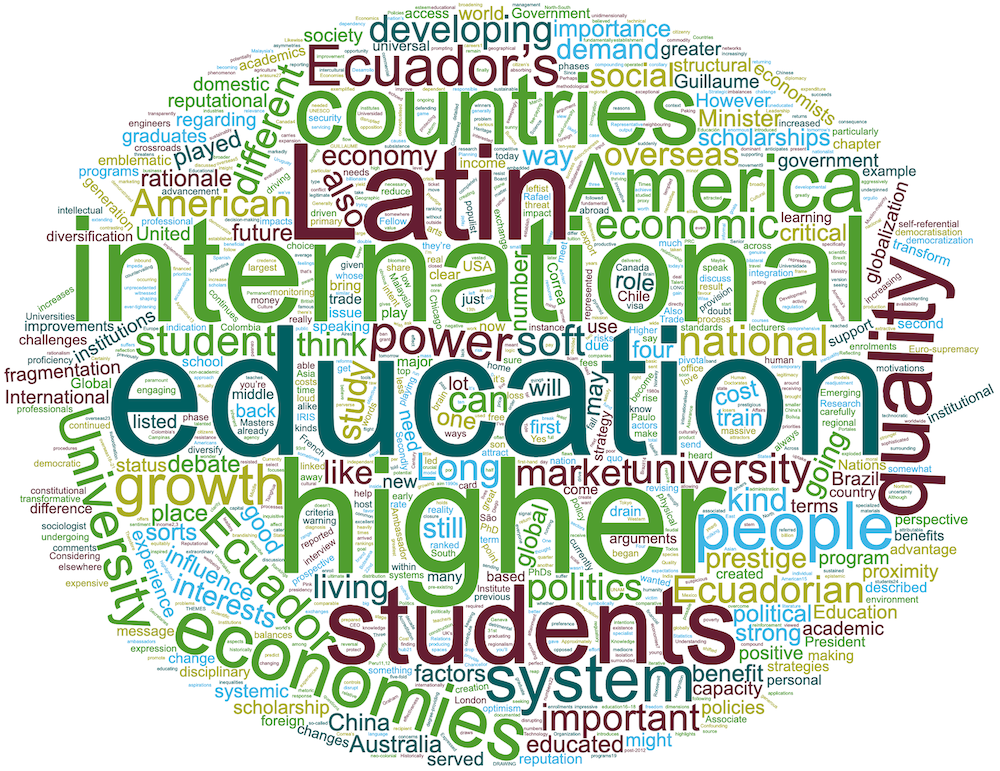
When viewed from the perspective of individual students seeking learning experiences overseas, international education is a positive expression of personal freedom and an opportunity for professional advancement. The benefits to students of international education are compound, and have been sweepingly described as changing students’ lives and shaping global careers. From the perspective of enrolling higher education institutions, high fee-paying international students contribute greatly to institutional financial wellbeing in an ever-tightening fiscal environment. The enormous success of these countries in driving the growth of international education has fundamentally shifted the way universities are financed and operated. However, there are many countervailing challenges for international education that have been discussed broadly in scientific literature. This chapter frames these challenges within economic, social and reputational dimensions and discusses them in context with the rise of higher education in emerging economies, particularly Latin America. This chapter draws insight from an interview with Dr Guillaume Long, who is currently an Associate Research Fellow at the French Institute for International and Strategic Affairs (IRIS). He has also served as the Ecuadorian Ambassador to the United Nations. Of greatest relevance to international education, Dr Long previously served as a Senior Minister in the Ecuadorian Government. During his term in office, Dr Long led the development of four new emblematic universities.
• download full text •
Wise, G. and Negrin, A. (2019). A critical review of the composition and history of safe use of guayusa: a stimulant and antioxidant novel food. Critical Reviews in Food Science and Nutrition, 59(15). doi:10.1080/10408398.2019.1643286
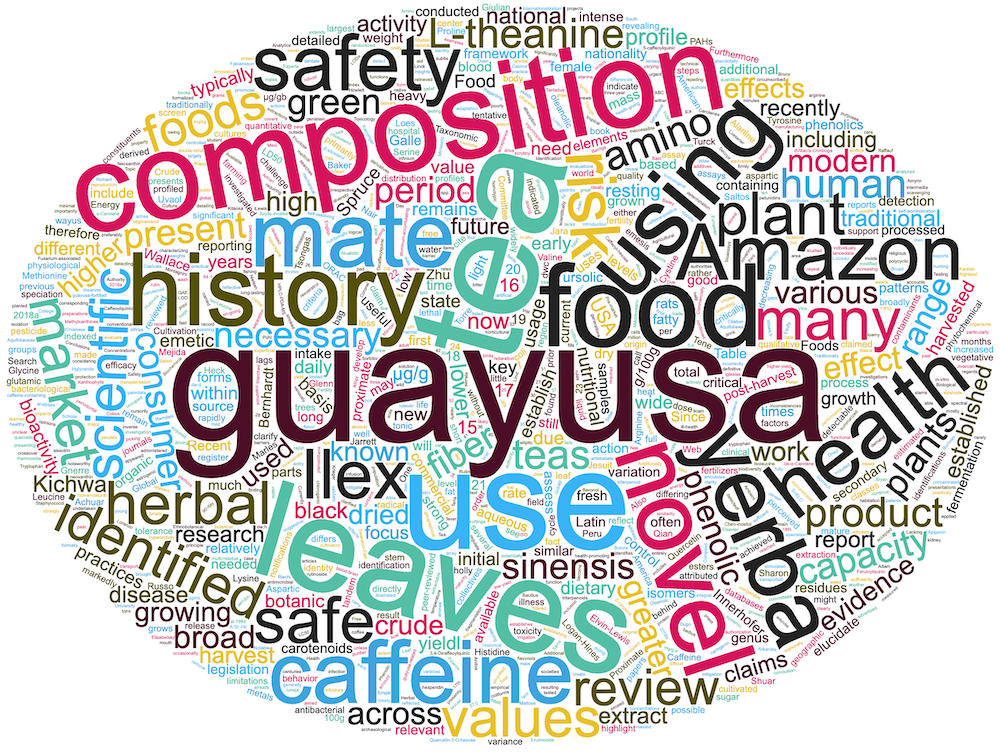
Due to rapid international market development, there is a strong and urgent need to assess the safety of the novel food, Ilex guayusa. Guayusa has been consumed for centuries in the western Amazon as an herbal tea, and novel food regulation provide a detailed framework for safety assessment of novel foods with such a history of use. This study reviews guayusa’s taxonomy, chemical composition, toxicology, ethnobotany, and history of safe use as key elements of a robust novel food safety assessment. Guayusa is a product of traditional agricultural systems with a continuous history of consumption in Ecuador. Its known chemical composition appears to present no greater risk to human health than existing teas such as green tea or yerba mate, although our understanding of guayusa’s chemical profile is still nascent, requiring further investigation. Broad consumption of guayusa is not associated with a history of adverse effects or product safety notifications. Biochemical and phytochemical studies have profiled its nutritional content, metabol- ite composition, and bioactivity, validating guayusa’s antioxidant and stimulant properties. In con- clusion, guayusa leaves have a well-documented chemical composition and history of safe use, which are key considerations for authorization as a novel food in the EU.
• go to publisher •
• download full text •
Wise, G., Santander, D. E., Lovell, A. and Proaño, I. E. (2019). Ethical contracting for research with organizations in low and middle-income countries Business Ethics: European Review, In press.
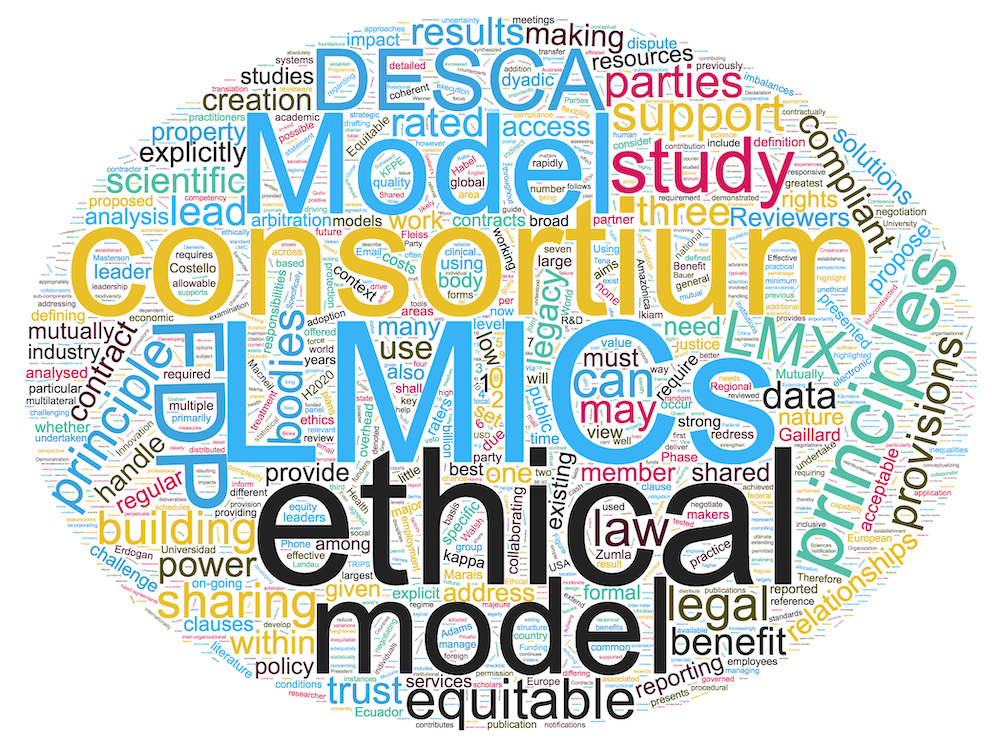
There is a need to formulate ethical principles for research contracting with Low and Middle Income Countries (LMICs), assessing whether model agreements of funding bodies support ethical partnership. This study has synthesized 10 principles for ethical research contracting with LMICs. Using these principles, a panel of reviewers rated the ethical competence of model research consortium agreements offered by US, UK and European research funding agencies. Two of the three model agreements satisfactorily complied with none of the ethical principles. The third model satisfactorily complied with only one principle. Relational contracting theory is used to understand the shortcomings of model research agreements. We use leader-member exchange theory to contextualize multi-institutional research consortia as clusters of dyadic relationships between a leader and members. We propose contractual solutions that encourage equitable relationships within research consortia.
Wise, G. and Carrasco, I. E. (2018). How to build a regional university: A case study that addresses policy settings, academic excellence, innovation system impact and regional relevance. Journal of Higher Education Policy and Management, 40(4): 342-358. doi:10.1080/1360080X.2018.1482104
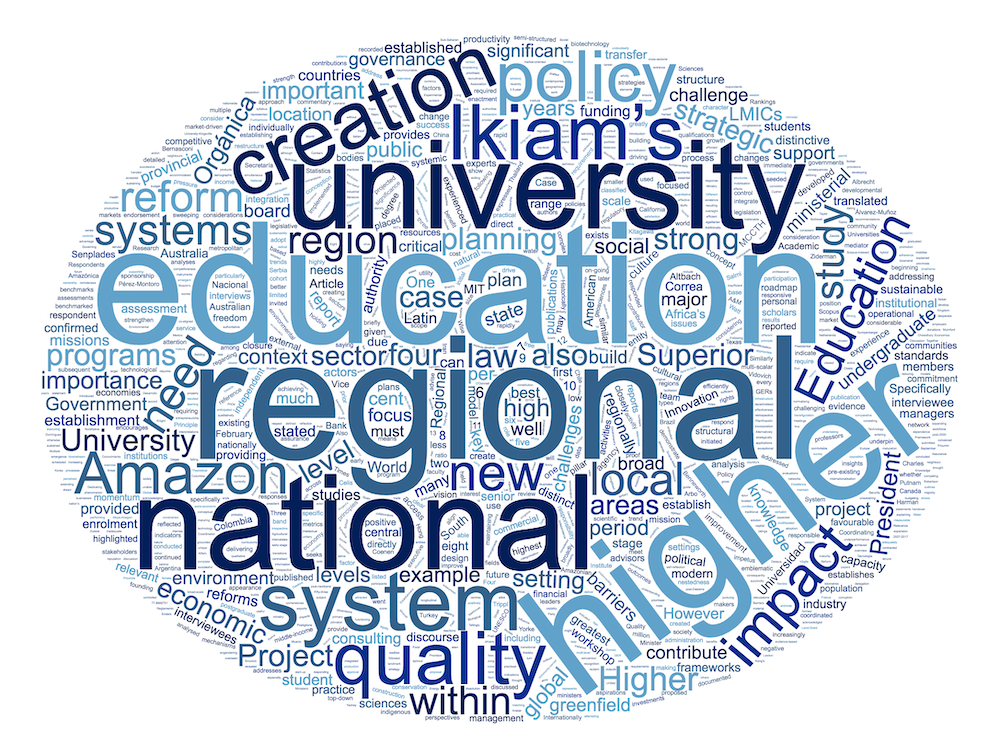
This case study tests whether a top-down state-driven development model can establish a university on principles of excellence, impact, and relevance. The creation of Ikiam is analysed qualitatively and the results are discussed in context with national and international policy settings for higher education and innovation. This study provides insights for low and middle-income countries to strengthen higher education and innovation systems through university creation. Internationally it provides practical insights for university master planning taskforces to build organizational strength and distinctiveness through excellence, impact and relevance.
• go to publisher •
• download full text •
Wise, G. and Santander, D. E. (2018). Comparative composition analysis of dried leaves of Ilex guayusa (Loes.). Journal of Food and Nutrition Research, 6(10). doi:10.12691/jfnr-6-10-4
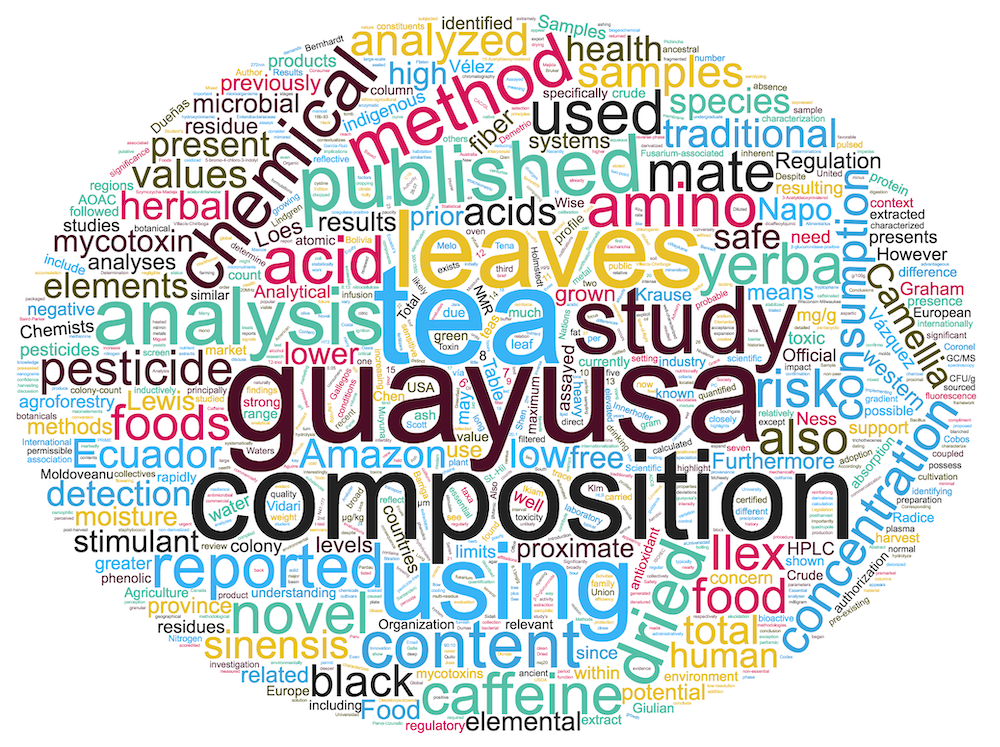
Guayusa (Ilex guayusa Loes.) is a traditional herbal tea of western Amazon regions and an international commodity of increasing importance. Its consumption is rapidly increasing in the USA and Canada, and the authorization of guayusa extract as a novel food in Europe signals further market growth of this antioxidant and stimulant tea. There is an urgent need for a deeper understanding of the chemical composition of guayusa to support its risk assessment and safe consumption internationally as a novel food. Accordingly, this study characterizes the proximate composition of guayusa and elucidates caffeine, amino acid and elemental components. It also evaluates potential microbial, mycotoxin and pesticide residue contaminants. Guayusa’s moisture content, caffeine concentration, amino acid compliment and profile of nutrient and toxic elements including heavy metals present no greater risk to human health than consumption of tea or yerba mate. A low risk due to mycotoxin, bacterial or pesticide residue contamination is also established.
• go to publisher •
• download full text •
Wise, G., Santander, D. E. (2018). Assessing the history of safe use of guayusa. Journal of Food and Nutrition Research. 6(7): 471-475. doi:10.12691/jfnr-6-7-8
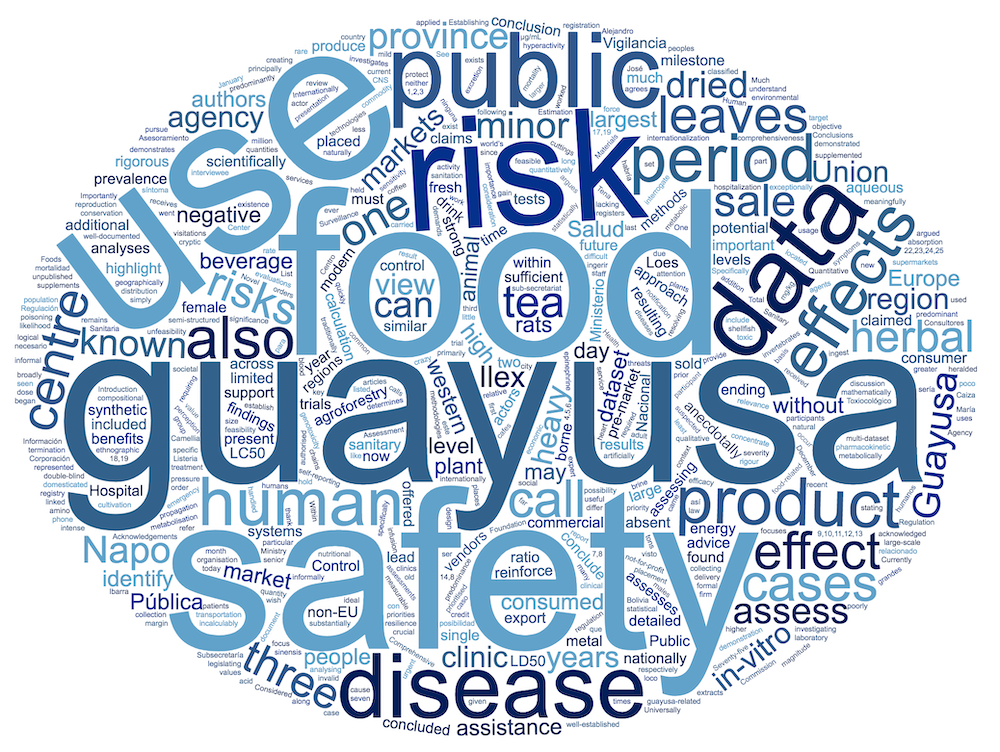
Guayusa (Ilex guayusa Loes.) is a herbal tea that has been consumed for centuries as a traditional food in western Amazon regions where it is now valued as an antioxidant and a stimulant agent. European Union novel food legislation permits traditional foods to be placed on the market if a history of safe use in a non-EU country can be established. This study investigates the safety of guayusa consumption, analysing provincial hospital admissions data; national disease register data; national toxicology agency call centre data; and national food safety authority data. We conclude that there is a history of safe use of guayusa in Ecuador. Establishing safe guayusa consumption is an important milestone for the authorisation of dried guayusa leaves as a novel food with claimed health benefits in Europe. Consequently, this study has significance for the international product development of guayusa as an antioxidant energy drink.
• go to publisher •
• download full text •
Current Research
• Indigenous entrepreneurs' perspectives on dance as a form of cultural tourism associated with Amazon Kichwa culture.
• Guidance for the preparation of European Union novel food notifications based on traditional use in a third country.
• Mechanisms for indigenous inclusion in university structures: Governance versus management approaches.
• Consequences of de-novo or reformative approaches to higher education institution growth in developing regions.
• A needs assessment of undergraduate indigenous learners in Latin America.
• A review of challenges in the area of English for academic purposes experienced by non-native English speaking researchers.
• The needs of, and support available to non-native English speaking researchers in Latin America.